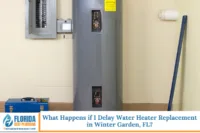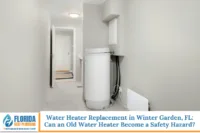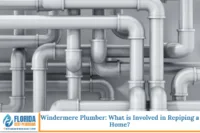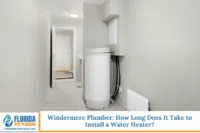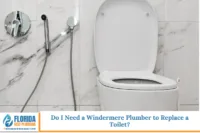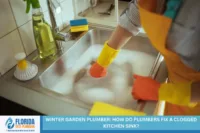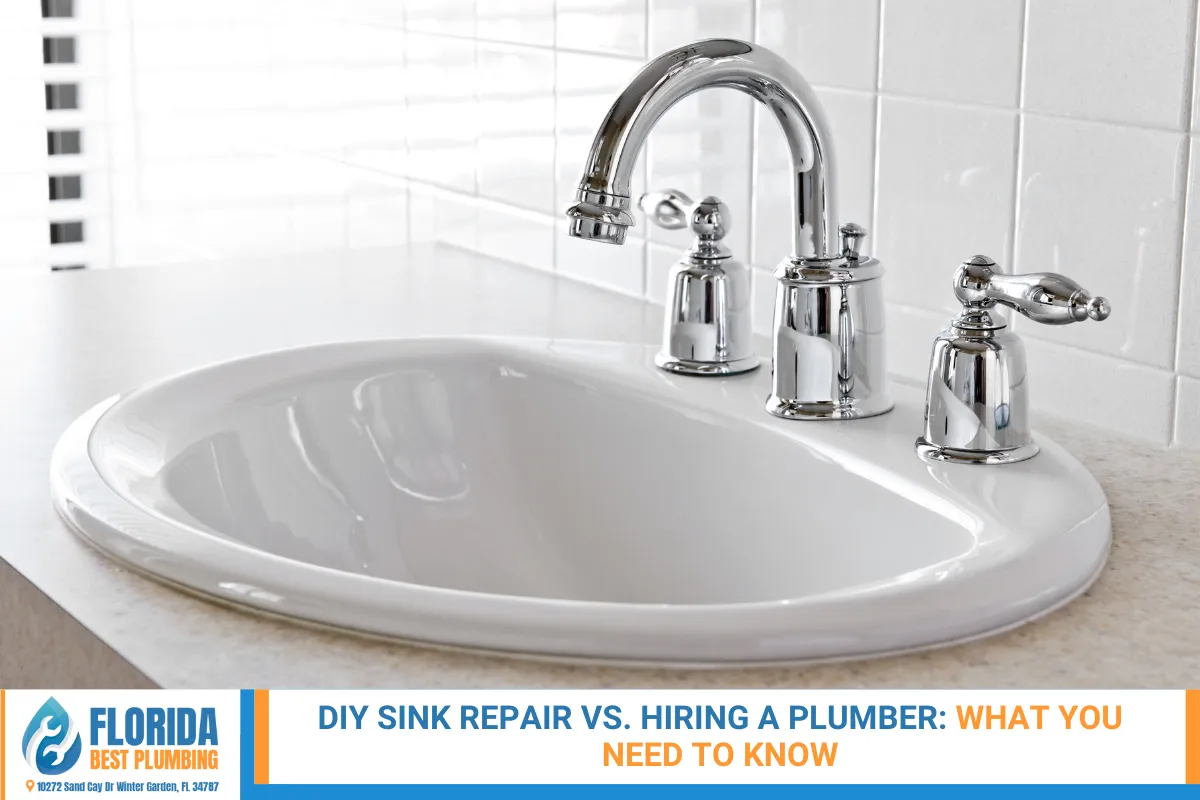
If you’ve ever dealt with a dripping faucet or a stubbornly clogged drain, you know how frustrating sink problems can be. One of the biggest decisions homeowners face when this happens is whether to tackle the issue themselves or call in a professional.
This guide will dive deep into the differences between DIY sink repair and hiring a plumber, especially for Winter Garden, FL, residents. We’ll cover everything from the tools and skills required to the potential risks and benefits. By the end, you’ll know exactly when it’s worth rolling up your sleeves and when to reach for the phone.
What Is Sink Repair?
Sink repair is fixing any problem related to a kitchen or bathroom sink. This includes:
- Leaky faucets
- Dripping or noisy pipes
- Clogged drains
- Water pressure issues
- Damaged seals or fixtures
- Corrosion and mineral buildup
These problems might seem minor, but they can quickly escalate. A small leak can damage cabinets or flooring, while a persistent clog might point to deeper issues in your plumbing system. Whether you’re a homeowner or renter in Winter Garden, keeping your sink in good shape is key to avoiding costly repairs down the line.
DIY Sink Repair: What It Takes
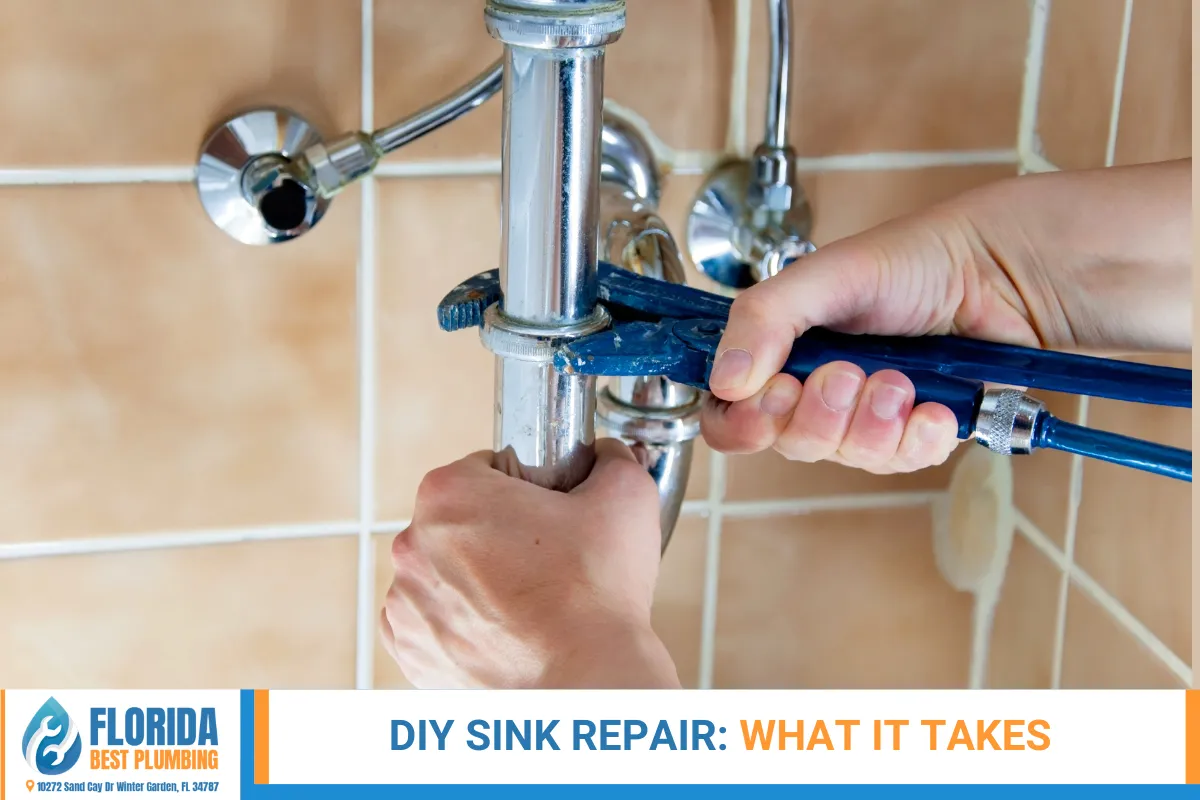
The Basics of DIY Sink Repair
Doing your sink repair can be empowering, but it’s not always as easy as a five-minute YouTube video makes it seem.
At a basic level, DIY sink repair involves diagnosing the issue and applying a hands-on solution using tools you likely have at home. It could be as simple as tightening a loose faucet handle or removing a clog using a plunger. But even small jobs can spiral if you’re not fully prepared.
To give yourself the best shot at success, you’ll need:
-
- A basic toolkit (wrenches, screwdrivers, pliers)
- Patience and attention to detail
- Knowledge of how your plumbing system works
- Willingness to shut off water valves and get messy
Winter Garden homeowners often deal with hard water, which can cause mineral deposits inside faucets. The local water conditions complicate a straightforward fix.
Advantages of DIY Sink Repair
1. Saves Money
The biggest reason people go DIY is the cost. Plumbing labor can be expensive, and fixing a basic problem can save you hundreds of dollars.
2. Immediate Action
No waiting for a service appointment—you can get started immediately. This is especially useful if you catch a leak early and want to prevent water damage.
3. Skill Building
Doing your repairs builds confidence and practical knowledge. Over time, you can tackle more complex tasks with greater ease.
Downsides of DIY Sink Repair
1. Limited Knowledge
Even simple plumbing issues can have hidden causes. You might stop the leak today, only to find mold growth weeks later because you missed the source.
2. Incorrect Fixes
Using the wrong parts, overtightening components, or failing to seal fittings properly can lead to bigger issues—like pipe bursts or long-term water damage.
3. Time-Consuming
DIY often takes longer than expected. Between gathering tools, researching fixes, and testing your repair, your Saturday afternoon can become an all-day affair.
4. No Warranty
If your fix fails, you’re on your own. Professional plumbers often back their work with guarantees, giving you peace of mind.
Common DIY Sink Issues You Might Encounter
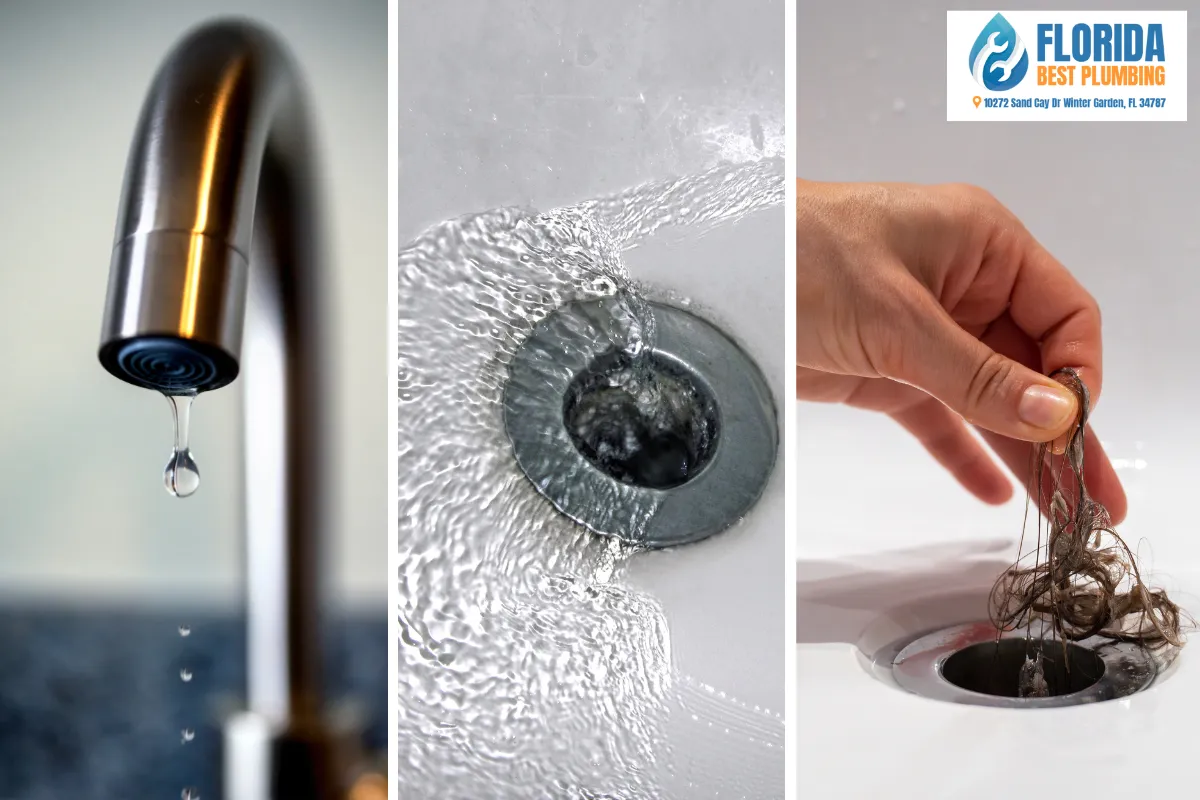
Not every sink problem requires a pro. Here are a few common ones you might be able to handle:
Leaky Faucet
Often caused by a worn washer or O-ring, this is a classic DIY fix. Shut off the water, remove the faucet handle, and replace the washer.
Slow-Draining Sink
Usually caused by hair, soap scum, or grease buildup. Clear it out with a plunger, plumber’s snake, vinegar, and baking soda mix.
Loose Faucet or Handle
If your faucet wiggles when you touch it, you may need to tighten a nut underneath the sink with a basin wrench.
P-Trap Blockage
The P-trap is the curved pipe under the sink. Removing and cleaning this piece can solve the issue if the water isn’t draining or smells bad.
When DIY Isn’t Enough: Time to Call a Plumber
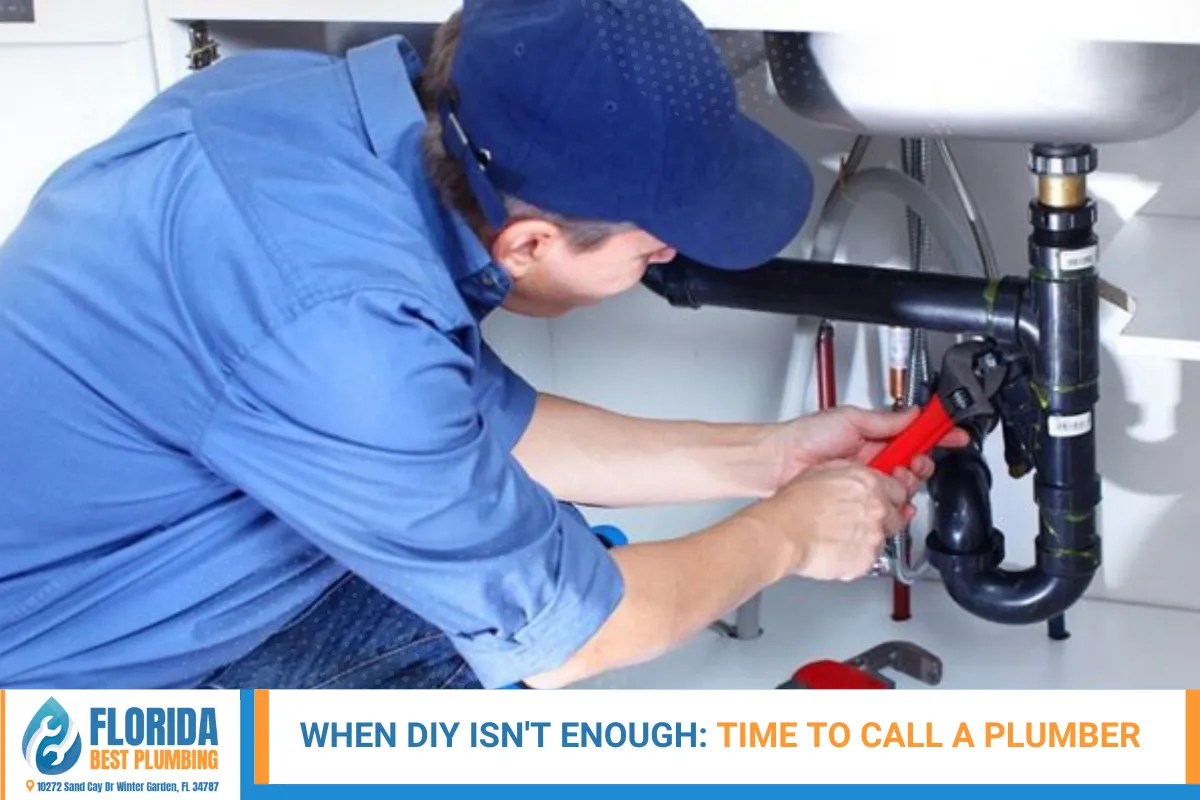
Signs That a Professional Is Needed
While DIY can handle small problems, here are signs that it’s time to call a plumber:
- The leak keeps coming back
- You notice water stains under the sink
- Mold or mildew is forming around the plumbing
- The pipes are making loud banging or whistling sounds
- There’s a sewage smell coming from the drain
- Your fixes don’t last more than a few days
In Winter Garden, many homes, especially older ones, have outdated plumbing that can be tricky to repair without professional help.
Benefits of Hiring a Licensed Plumber
1. Accurate Diagnosis
Plumbers have experience identifying the actual root cause of a problem, not just treating the symptoms. A clogged drain could be a blocked vent pipe or a collapsed sewer line.
2. Professional Tools
Plumbers use specialized tools like inspection cameras, pipe cutters, and hydro jets to resolve problems completely.
3. Code Compliance
Licensed professionals know local plumbing codes and make sure repairs meet them. This is important in Winter Garden, where permits and inspections may be required.
4. Guaranteed Work
Most reputable plumbers guarantee their repairs. If the issue returns, they’ll fix it again—free of charge.
5. Saves Time and Headaches
A pro often resolves what might take you all weekend in under an hour. That means fewer interruptions to your day and less risk to your home.
Plumbing in Winter Garden, FL: What Makes It Unique?
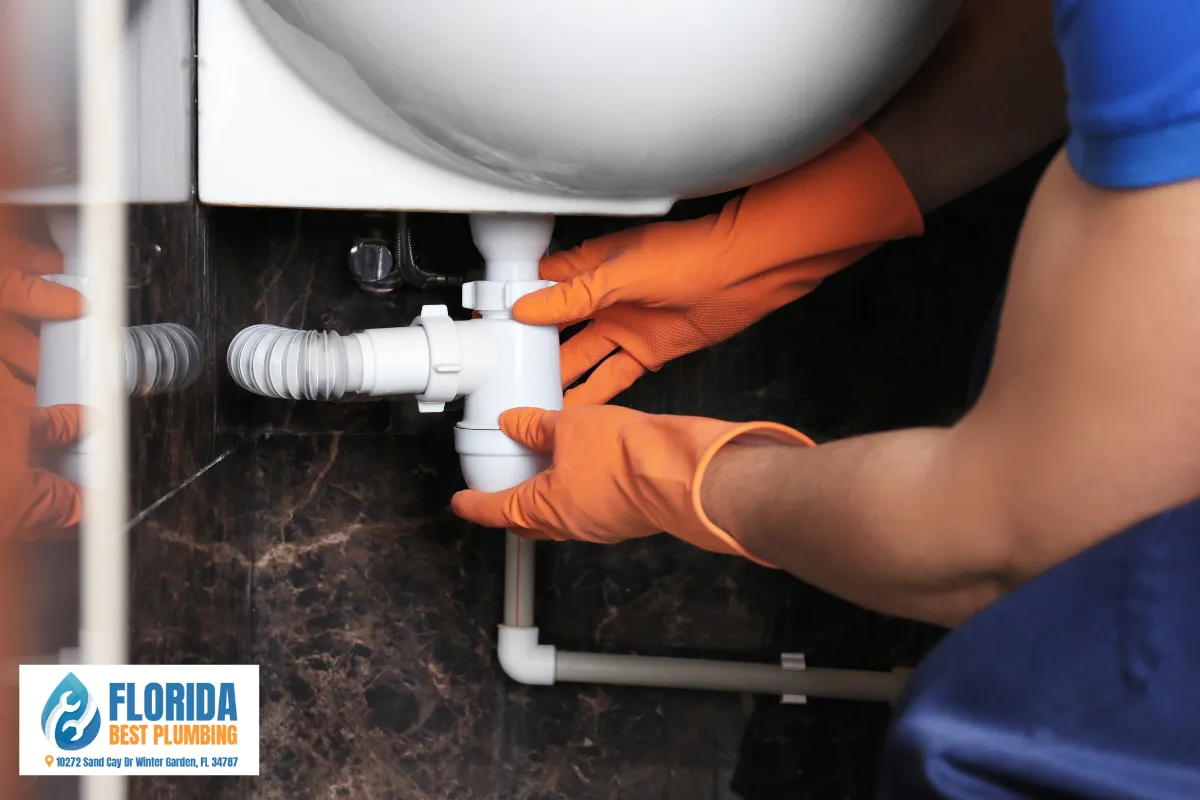
Sink repair in Winter Garden comes with its own set of quirks. Here’s what makes plumbing issues in this area different:
Hard Water
Winter Garden has moderately hard water, which leads to mineral buildup inside faucets, pipes, and fixtures. This can reduce water flow and corrode components over time.
Older Homes
Many houses in historic areas were built decades ago and may still have galvanized pipes. These are prone to rust and blockage, making DIY work more complicated.
High Humidity
Florida’s humid climate can worsen the effects of even small leaks. Moisture encourages mold growth, especially in areas under sinks that aren’t well-ventilated.
Preventing Sink Issues Before They Start
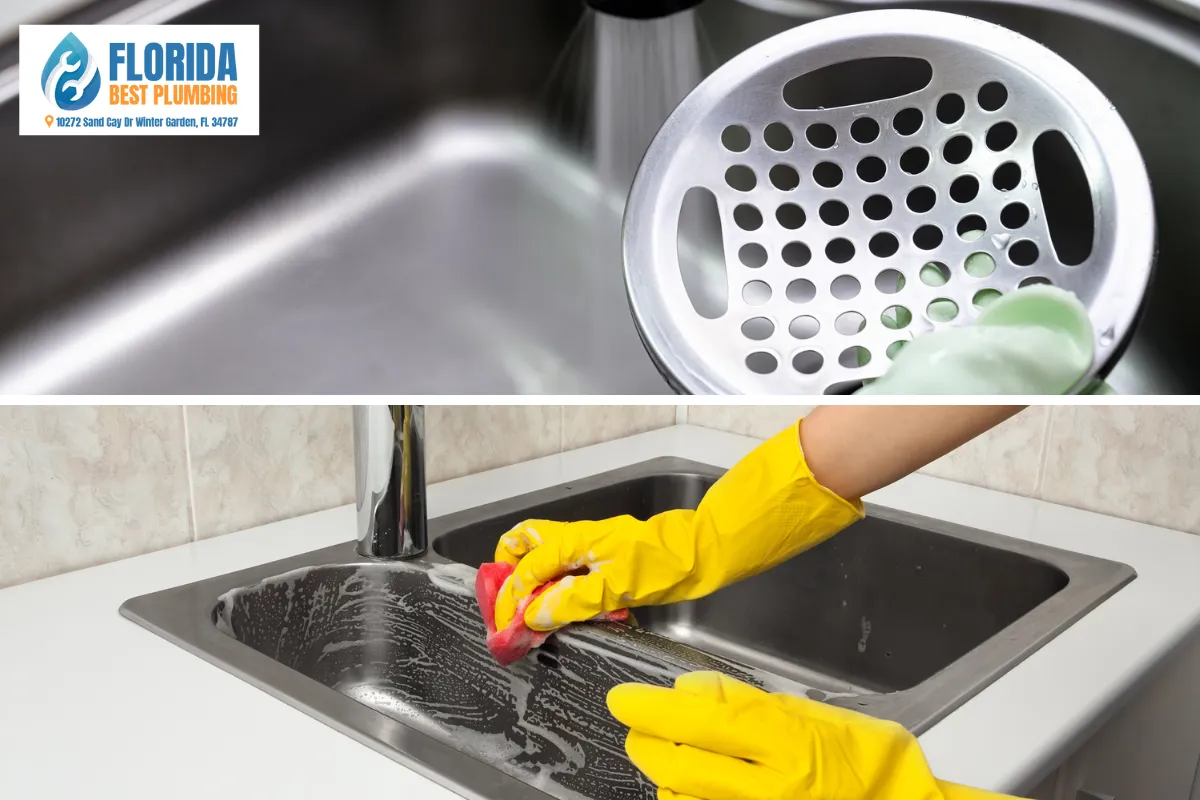
Prevention is your best friend, whether you’re a DIYer or prefer calling a plumber. Here’s how to avoid the most common sink issues:
- Don’t pour grease down the drain — it solidifies and clogs pipes.
- Use sink strainers to catch food and debris.
- Clean the aerator on your faucet every few months.
- Run hot water down the drain after heavy use.
- Check for drips monthly and fix leaks quickly.
Small habits like these can save you hundreds in plumbing costs over time.
Choosing the Right Option for You
Should You Go DIY or Call a Plumber?
Let’s break it down one more time.
Go DIY if:
- The problem is small (leaky handle, slow drain)
- You have the tools and some experience
- You’re comfortable working under the sink
Call a plumber if:
- You’re unsure of the cause
- The problem keeps coming back
- Water damage or mold is already present
- You’re dealing with older pipes
Making the right call isn’t just about saving Money but protecting your home and avoiding future problems.
Why It Matters: More Than Just a Leaky Sink
Sink issues might seem minor, but they can hint at larger problems within your plumbing system. Choosing whether to go DIY or hire a professional should depend on your comfort level, the complexity of the issue, and your willingness to take risks.
In the end, knowledge is your best tool. Understanding the basics of how your sink works—and recognizing when it’s time to ask for help—can save you time, Money, and stress. So whether you’re tightening a faucet or calling in the pros, you’re making a smart choice for your home.
Winter Garden Sink Repair – Florida Best Plumbing LLC
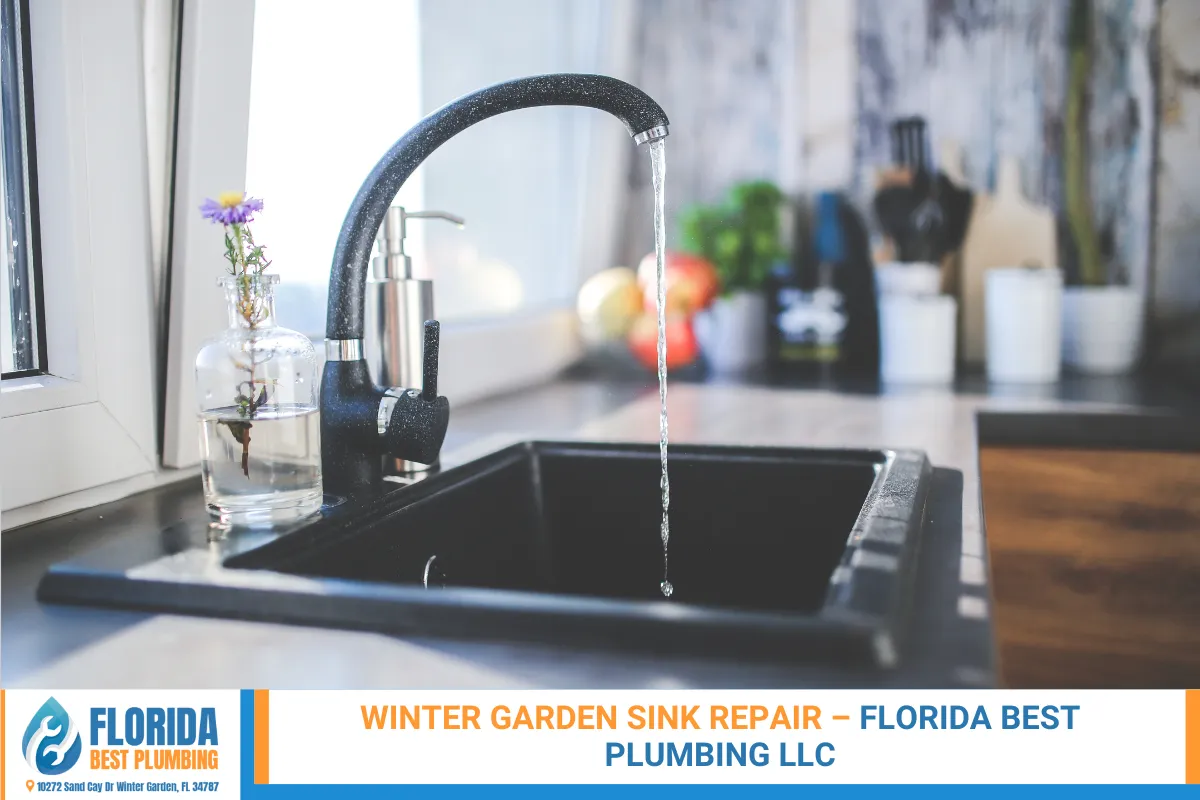
If your sink’s giving you trouble and the DIY route isn’t cutting it, professional help is just a call away. Florida Best Plumbing LLC offers reliable sink repair services throughout Winter Garden, FL, with fast response times and skilled workmanship.
For quick fixes or serious plumbing concerns, reach out anytime at (407) 683-6644. We’re available 24/7 to get your sink—and your routine—back to normal!
Frequently Asked Questions About Sink Repair
1. Can I fix a leaking bathroom sink or call a professional plumber?
A leaky bathroom sink is a common issue that many homeowners attempt to fix with DIY plumbing repairs. If it’s a minor leak, such as a loose faucet or worn-out washer, you can handle it with basic tools and a little research. However, not all leaks are surface-level. Some are linked to water supply lines, frozen pipes, or corroded connections deeper in the system.
A professional plumber ensures the problem is accurately diagnosed and fixed without costly mistakes or improper repairs. Licensed experts have the proper knowledge and equipment to handle everything from plumbing fixture replacements to external plumbing repairs. Also, reliable plumbing services protect you from safety hazards and unexpected expenses.
If you’re unsure where the leak originates or hear strange noises, it’s best to avoid risks and contact a professional plumbing service for a lasting solution.
2. What tools do I need for basic DIY plumbing repairs on a kitchen sink?
Tackling DIY plumbing around a kitchen sink requires a few essential tools. While some simple repairs, like unclogging drains or tightening fittings, are manageable, you still need the right gear for a safe and effective fix.
Here’s a list of basic tools for sink repair:
- Adjustable wrench – for tightening nuts and bolts
- Basin wrench – perfect for hard-to-reach faucet nuts
- Plumber’s tape – seals threaded connections to prevent leaks
- Plunger – clears minor blockages
- Drain snake – removes deep clogs from the drainpipe
- Bucket and towels – helps manage water spills during repairs
You may also need to shut off the water valve under the sink before beginning work. But remember that working without proper knowledge can lead to safety risks, major damages, or emergency repairs. Calling a professional plumbing service is the smart move for anything beyond minor issues.
3. When should I call for emergency plumbing services instead of fixing the issue myself?
You should call emergency plumbing services whenever you’re facing major leaks, frozen pipes, or other complex plumbing issues that pose immediate safety hazards or risk major damage to your home. DIY methods are fine for minor issues, but emergencies demand a swift, professional response.
Here are situations that require urgent help:
- Burst pipes or gushing water
- Backed-up drains with foul odors (health and safety risk)
- No access to clean water (check your water meter and water supply)
- A leaky pipe near electrical outlets or appliances
- Uncontrollable leaks from your plumbing fixture
Attempting to resolve these with drain cleaners or home remedies often leads to expensive repairs or worsens the damage. A professional plumber brings the experience, proper equipment, and knowledge of plumbing repairs to address these issues quickly.
Emergency response times matter in places like Winter Garden, so always keep a reliable plumbing service on speed dial.
4. What are the risks of DIY plumbing without proper equipment and knowledge?
Doing DIY plumbing without the right tools or training may seem cost-effective—but it often causes more harm than good. One wrong move can damage water lines, flood your cabinets, or cause unexpected expenses that outweigh hiring a pro in the first place.
Here’s what can go wrong:
- Improper repairs that lead to leaks or bursts
- Breaking or stripping pipe threads
- Over-tightening connections and damaging the plumbing fixture
- Failing to spot hidden health hazards like mold or mildew
- Not knowing how to shut off the water valve correctly
These mistakes can result in major plumbing projects later. Worse, missteps with plumbing jobs involving electricity or gas (like dishwashers or water heaters) introduce safety hazards.
For any job that’s more than a simple repair, it’s safer—and usually cheaper long-term—to hire a professional plumbing service to ensure everything is up to code and done right.
5. How can I prevent sink problems and reduce water usage over time?
Preventing sink issues before they happen protects your home and helps cut down on water usage and utility costs. Whether it’s a kitchen sink or bathroom sink, regular care can extend the life of your fixtures and minimize plumbing emergencies.
Here are some preventative tips:
- Install mesh drain screens to catch food, hair, and debris
- Avoid pouring grease down the drain—it hardens and blocks water lines
- Clean the plumbing fixture aerator monthly to prevent buildup
- Use natural alternatives to drain cleaners, like baking soda and vinegar
- Inspect under the sink for minor leaks or moisture regularly
- Test and turn off the water valve periodically to ensure it’s working
- Schedule annual checkups with a professional plumber
Also, if you live in an older home, consider having your water meter and external plumbing inspected for aging pipes or corrosion. These small steps can prevent major damages and reduce the need for expensive repairs later.
Read: When to Call a Plumber for Sink Repair: Common Issues and Warning Signs
What Happens if I Delay Water Heater Replacement in Winter Garden, FL?
Water Heater Replacement in Winter Garden, FL [...]
Water Heater Replacement in Winter Garden, FL: Can an Old Water Heater Become a Safety Hazard?
Why Aging Water Heaters Are More Than [...]
Windermere Plumber: What is Involved in Repiping a Home?
A Fresh Start: Why Repiping Matters for [...]
Windermere Plumber: How Long Does It Take to Install a Water Heater?
Uncovering the Truth About Water Heater Installation [...]
Do I Need a Windermere Plumber to Replace a Toilet?
Why Hiring a Windermere Plumber Matters for [...]
Winter Garden Plumber: How Do Plumbers Fix a Clogged Kitchen Sink?
If you need a plumber in Winter [...]


